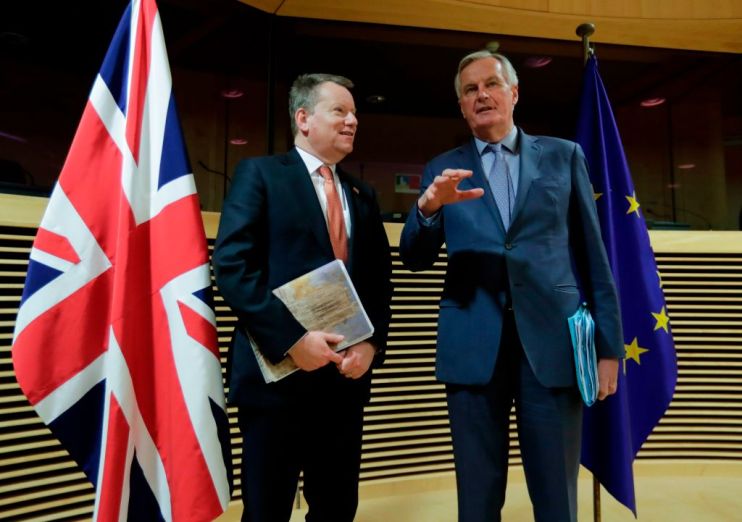Brexit trade deal ‘won’t happen’ unless EU changes fisheries stance by June

The UK’s Brexit negotiating team does not expect a trade deal to be done before the 31 December deadline if the EU does not change its position on fisheries and the so-called level playing field by June.
The two areas have become major flashpoints in the first two rounds of UK-EU talks, with negotiators from both sides admitting there had been little movement.
A source close to the negotiating team said there needed to be an understanding over the next two negotiating rounds “that we’re not going to subordinate our laws” on these areas or else a trade deal was unlikely.
They added: “If they can understand that I think we can reach an agreement, but at this stage I’m not quite sure they have.”
The EU wants its member states to maintain the same fishing access to UK waters they have now under the bloc’s Common Fisheries Policy.
This has been described as unacceptable by the UK, with politicians and negotiators consistently saying the UK needs to be an “independent coastal state” that has control of its fisheries laws.
The level playing field relates to a Brussels position that there must be regulatory equivalence on a number of policy areas – such as social, environmental, tax, state aid, consumer protection, workers rights and climate change – for the UK to maintain tariff-free access to EU goods and vice versa.
The source said: “If [the EU] continue to insist on their position on level playing field and the Common Fisheries Policy, we are never going to accept that. I hope they will move on from it.”
The UK’s chief Brexit negotiator David Frost has yet to give the EU his own proposal of what a future arrangement concerning fisheries policy could look like.
City A.M. understands he will not do this until EU chief negotiator Michel Barnier agrees that the UK will not remain in the Common Fisheries Policy,
However, Barnier said on Friday that there could be no progress until the UK outlines its own new proposal.
“The EU will not agree to any future economic partnership that does not include a balanced, sustainable and long-term solution on fisheries,” he said.
“That should be crystal clear to the UK.”
The deadline for a trade deal is 31 December, but both teams will take a break from talks in June in what has been described as a period to “take stock” of negotiations.
There are currently two more week-long negotiating rounds scheduled before that point.
The UK will decide after those rounds if it should continue to pursue negotiations or prepare to exit the current transition period without a trade deal.
This would see the UK and EU revert to trading on World Trade Organisation terms, with new taxes and tariffs.
On Tuesday, Cabinet Office minister Michael Gove said a deal by the 31 December deadline is “entirely possible” before and is “better than 2/1” odds to happen.